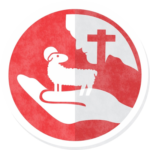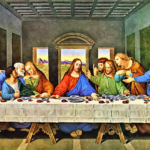Thank you for visiting. We trust that you have enjoyed reading our articles.

Boundaries Benefit All
“Moses’ father-in-law replied, What you are doing is not good. You and these people who come to you will only wear yourselves out. The work is too heavy for you; you cannot handle it alone” (Exodus 18:17-18 NIV).
I just finished reading a book called “Boundaries” by Drs. Henry Cloud and John Townsend. It is a New York Times Bestseller and has sold over two million copies since it was first published in 1992 and then revised in 2017. This is a Christian book that uses appropriate Scripture to help readers take control of their lives by learning when to say yes and when to say no. The authors tell us, “Any confusion of responsibility and ownership in our lives is a problem of boundaries. Just as homeowners set physical property lines around their land, we need to set mental, physical, emotional, and spiritual boundaries for our lives to help us distinguish what is our responsibility and what isn’t.” This book has largely been bought by parents trying to set boundaries for their children. Also, the book has other chapters on how to set healthy boundaries on your family, friends, spouse, work, and work and even yourself.
Many of us consider boundaries to be selfish and feel guilty about setting a boundary. The authors tell us, “Misinformation about the Bible’s answers to these issues has led to much wrong teaching about boundaries. Many clinical physiological problems, such as depression, anxiety disorders, eating disorders, addictions, impulse disorders, guilt problems, shame issues, panic disorders, and marital and relational struggles, find their roots in conflicts with boundaries.
First, a little clarification on boundaries is in order. We are responsible to others and for ourselves. “Carry each other’s burdens,” teaches Galatians 6:2, “and in this way you will fulfill the law of Christ.” Yes, we are responsible to one another. Galatians 6:5 teaches us that, “each one should carry their own load.” The key to understanding these verses is to understand the Greek word for burden which means “excess burdens” or burdens that are so heavy they weigh us down. The authors state that these burdens are like boulders and we shouldn’t be expected to carry a boulder by ourselves. In contrast, the Green word for load means “cargo” or the “burden of daily toil.” These loads are like knapsacks which we can carry by ourselves. You may see this coming…… “Problems arise when people act as if their “boulders” are daily loads and refuse help, or as if their “daily loads” are boulders they shouldn’t have to carry. The results of these two instances are either perpetual pain or irresponsibility.”
Boundaries are not walls. The Bible does not say that we are to be “walled off” from one another but rather be “one” with them (John 17:11). Cloud and Townsend write that we are “to be in community with others. But in every community, all members have their own space and property. The important thing is that property lines be permeable enough to allow passing and strong enough to keep out danger.” God has set boundaries. He does not allow evil into His house. He does allow in those who “confess with your mouth that Jesus is Lord and believe in your heart that God raised him from the dead” (Romans 10:9).
In Exodus 18, we learn how Jethro, father-in-law, to Moses helps Moses to set boundaries.
“When his father-in-law saw all that Moses was doing for the people, he said, “What is this you are doing for the people? Why do you alone sit as judge, while all these people stand around you from morning till evening?” (Exodus 18:14). In Exodus 18:17-18, Jethro tells Moses, “What you are doing is not good. You and these people who come to you will only wear yourselves out. The work is too heavy for you; you cannot handle it alone.” Jethro encouraged Moses to select Elders to serve as judges for the simple cases and only bring the difficult cases to Moses.
In Mark 6:31, we learn that the crowds following Jesus and His disciples were growing and preventing them from eating. ”Then, because so many people were coming and going that they did not even have a chance to eat, he said to them, “Come with me by yourselves to a quiet place and get some rest.” Jesus recognized that to do God’s work effectively we need periodic rest and renewal.
Prayer: Dear God, Help us to set boundaries that bring honor to you. Amen.
Meet the Author
Todd Shupe is a Men’s Ministry Specialist through the General Commission of United Methodist Men and is in training to be a Certified Lay Minister through the Louisiana Conference of the United Methodist Church. He currently serves as the President of the Baton Rouge District of United Methodist Men and is a Board Member for Gulf South Men and serves on the Action Team for The Kingdom Group. He is a volunteer for the Walk to Emmaus, Grace Camp, and Iron Sharpens Iron. Todd resides in Baton Rouge, Louisiana.
We welcome your comments below.
Liked this post?
Read more below or search for more topics...
-
Return to the Father
Return to the Father “If you return to me, I will restore you so you can continue to serve me” (Jeremiah 15:19 NLT). All of us that follow Jesus have many things in common. One of which is that we are all sinners. As we become a believer in Christ, we are born again into God’s family. Once you are born again you cannot be unborn. Our relationship with God can, and will be, damaged by sin. However, read this closely – no matter the sin- the relationship is still there. The Parable of the Prodigal Son (also known as the Two Brothers, Lost... -
Book Review: Twelve Ordinary Men
Book Review: Twelve Ordinary Men “Instead, speaking the truth in love, we will grow to become in every respect the mature body of Him who is the head, that is, Christ (Ephesians 4:15 NIV). I have enjoyed reading the book, “Twelve Ordinary Men” by John MacArthur. Each chapter focused on a different disciple and blessed me with new insight to each of these men. I was particularly drawn to the chapter about John, the Apostle of Love. Throughout our lives we all find ourselves on different sides of the truth and love issue. Sometimes we want justice and sometimes we want mercy. Most... -
Never Grow Tired of Doing Good
Never Grow Tired of Doing Good “Let us not become weary in doing good, for at the proper time we will reap a harvest if we do not give up” (Galatians 6:9 NIV). When I think of “doing good” I often think of John Wesley. One of John Wesley’s most famous quotes was, “Never grow tired of doing good.” I thought of Wesley and his quote as I was reading Galatians 6. This was not a catchy marketing campaign. This was part of his core beliefs which mirrors closely with Paul’s Epistle to the early church in Galatia (Galatians 6:9). Wesley believed that upon...



